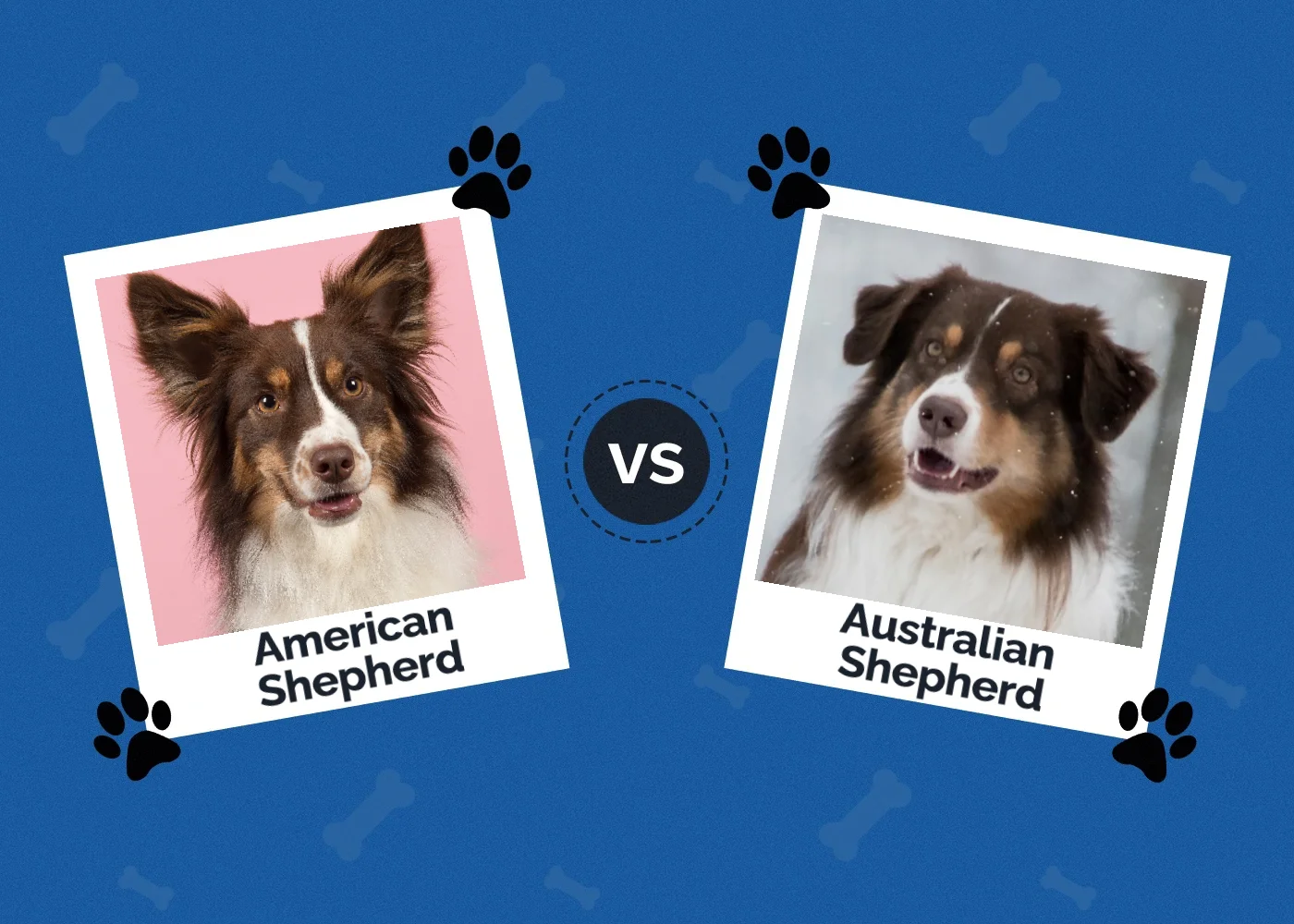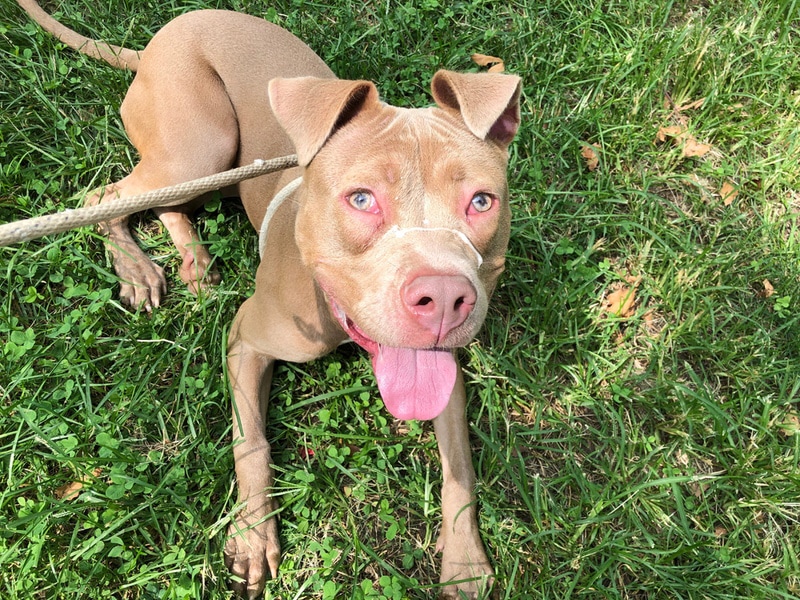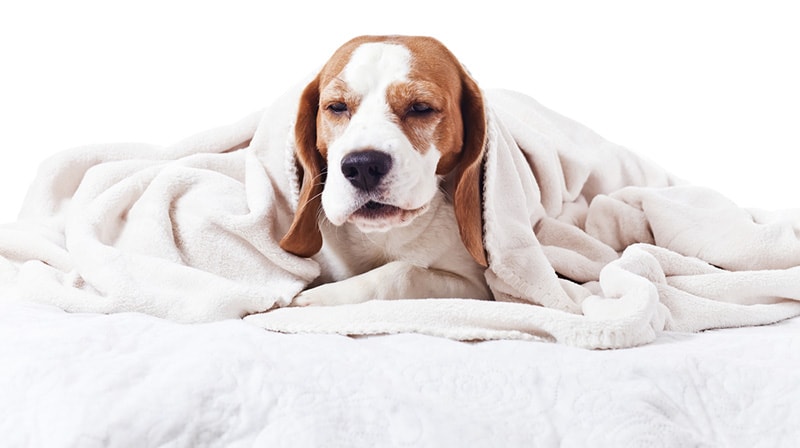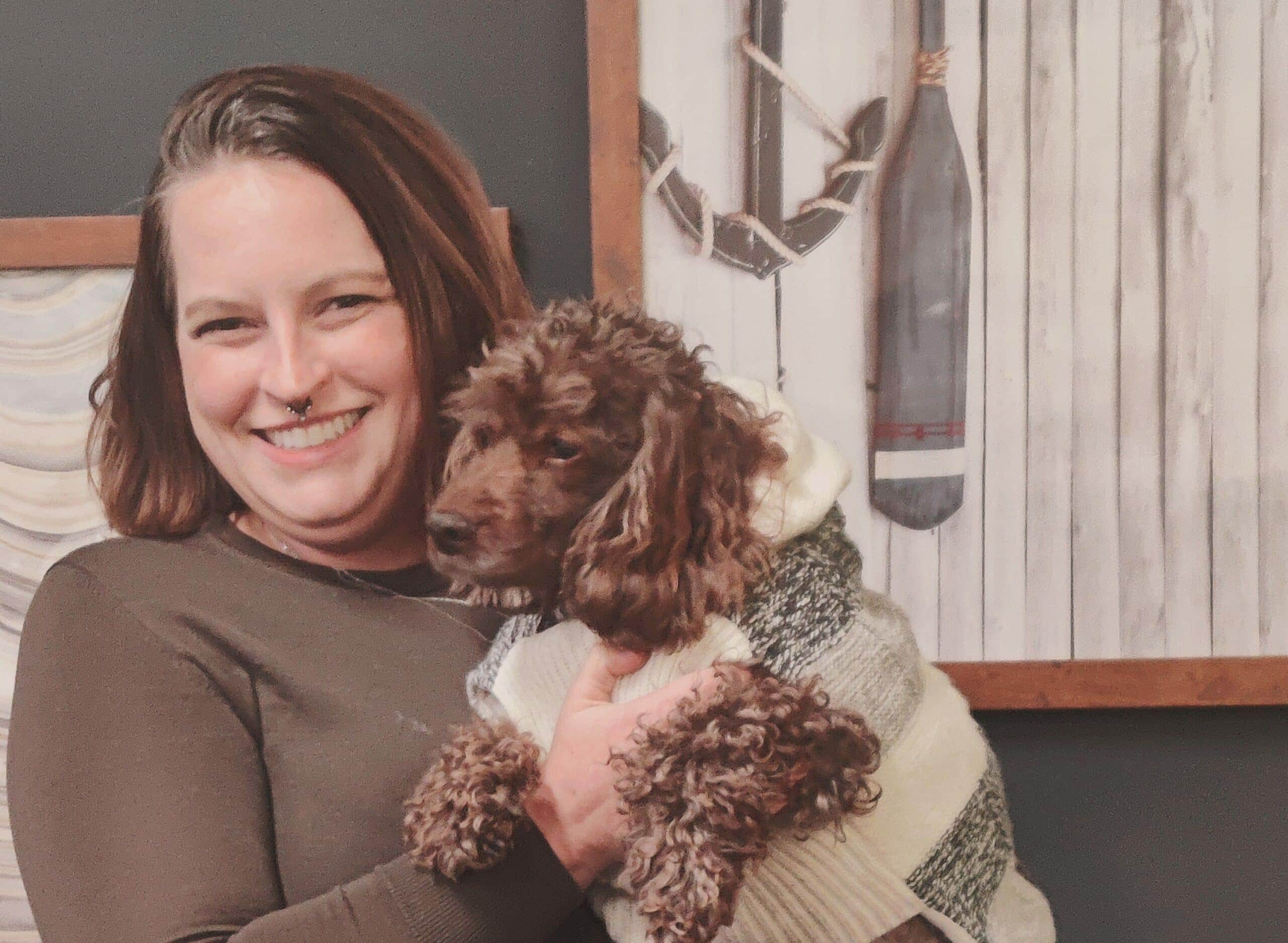Are Australian Shepherds Good Family Dogs? Pros & Cons

Updated on
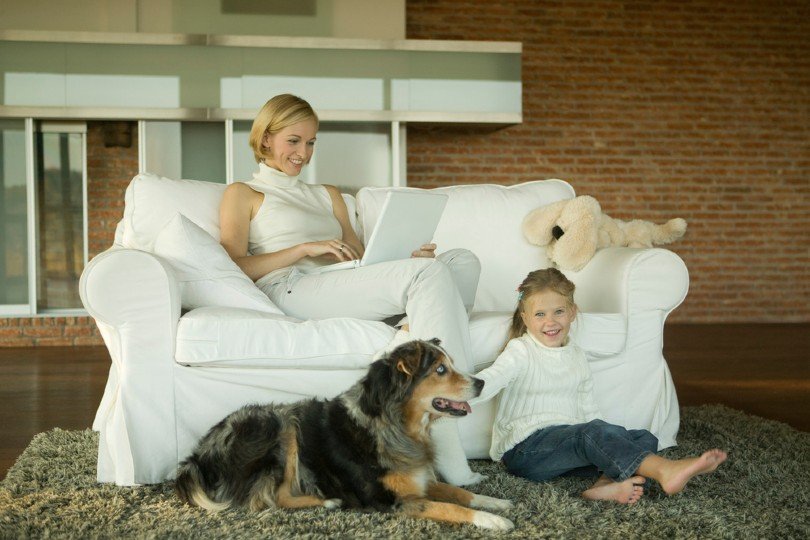
If you are on a puppy search, finding a compatible dog that fits in with your family is essential. If your family is growing or you have a multi-pet household, you need a dog that will fit in like a puzzle piece. If you’re looking for “family-friendly” breeds, the Australian Shepherd is sure to show up.
They are incredibly interactive and devoted to their families. They get along with kids and other pets, but there are a few things to consider before you buy one. We’ll discuss all the details so you can decide if an Australian Shepherd is a good candidate for your next pet.
Why Are Australian Shepherds Good Family Dogs?
Australian Shepherds make excellent family dogs because they are loyal, trainable, and loving.
1. Kid-Friendly Energy Levels
They are incredibly energetic and always ready for playtime. Because of their boundless vitality, your kids will have fun wearing them out—or vice versa. They will never resist a game of tug of war or playing tag.
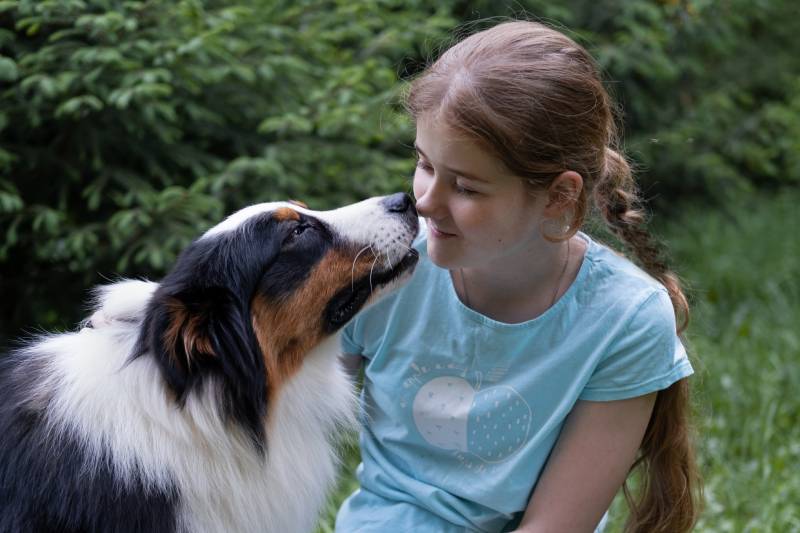
2. Love for Outings
Australian Shepherds are ready for any adventure, whether a family vacation or a trip to the store. They integrate well with your existing pets and with dog park visits. Once your dog is trained on the leash, you can take them anywhere dogs are allowed.
3. Agreeableness
Early socialization is critical to creating a well-rounded, adaptable pet. However, Australian Shepherds seem to have a naturally charismatic attitude that fits in well with people of all ages and other animals. Their eagerness to please helps with training, even if they initially struggle.
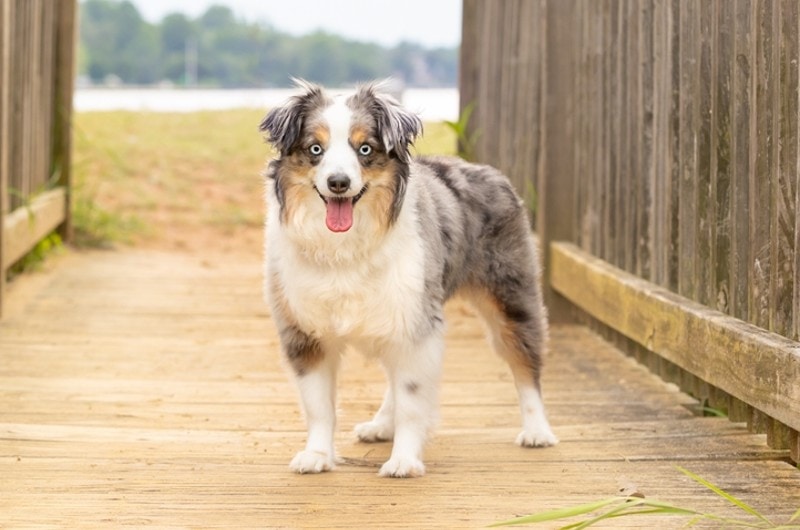
4. Excellent Workout Buddy
If you love going on runs or walks or participating in sporting events, the Australian Shepherd will be able to keep up. They will gladly burn off steam with you and keep you in good shape.
5. Awesome Herding Potential
If you have a few acres and own livestock, the Australian Shepherd is an ideal pet. Since it’s naturally developed in their genetics, their herding skills will protect your animals and keep them in line. They’re experts in their field if you could use an extra hand (or paw) on the farm.
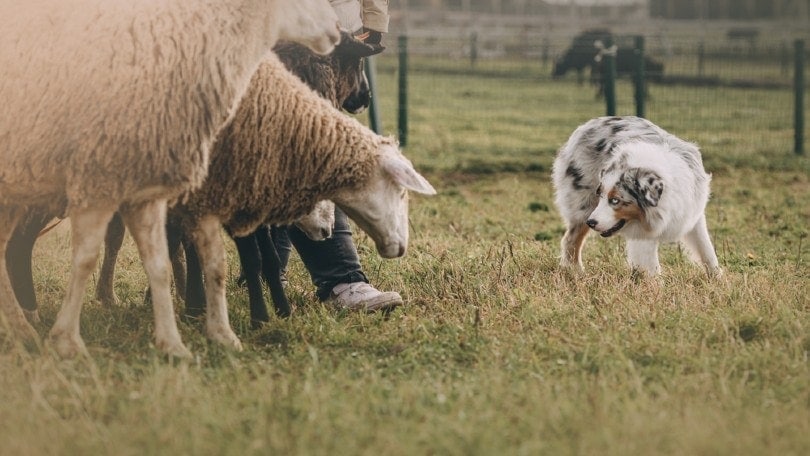
 What Are Some Potential Deal-Breakers?
What Are Some Potential Deal-Breakers?
Although they’re excellent pets for families, Australian Shepherds aren’t suitable for every owner. Their personalities, tendencies, and physical attributes might not work for you.
So, what are some potential problem areas?
1. Energy
Australian Shepherds are pulsating with energy all the time. If your household is more low-key, they may not be happy and can become bored. They will need lots of space to run, frequent walks, and activities to occupy their time.
If you don’t have as much time to cater to their needs, they can develop unwanted behaviors like excessive chewing, destruction of belongings, and even nervousness.
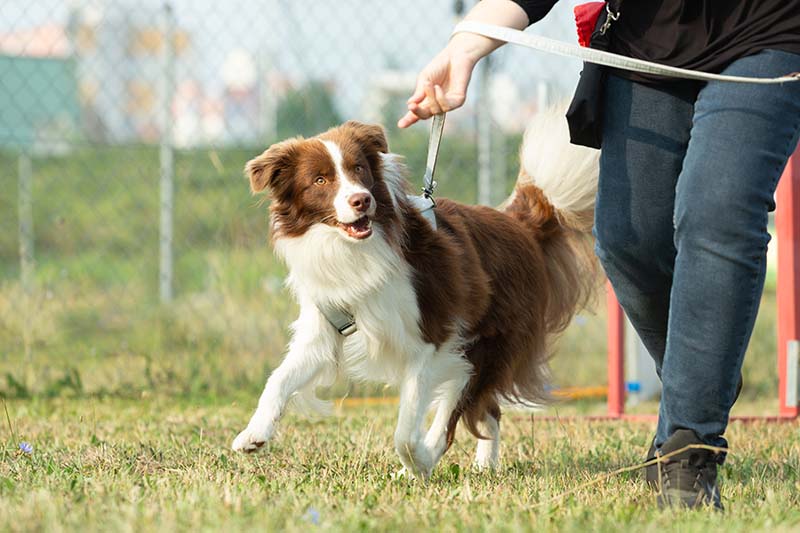
2. Intelligence
The Australian Shepherd is one of the most intelligent breeds, which can also pose problems. They can be stubborn, resistant, and hard to work with if they don’t feel up to it. If you’re a person who lacks patience, they might not be the right breed for your home.
3. Size
If you have an apartment or condo, an Australian Shepherd isn’t the ideal pet. Many rentals have maximum weight limits, breed restrictions, and other specifications. Even though this breed is only medium-sized, they might be too big to live comfortably in a small space when fully grown.
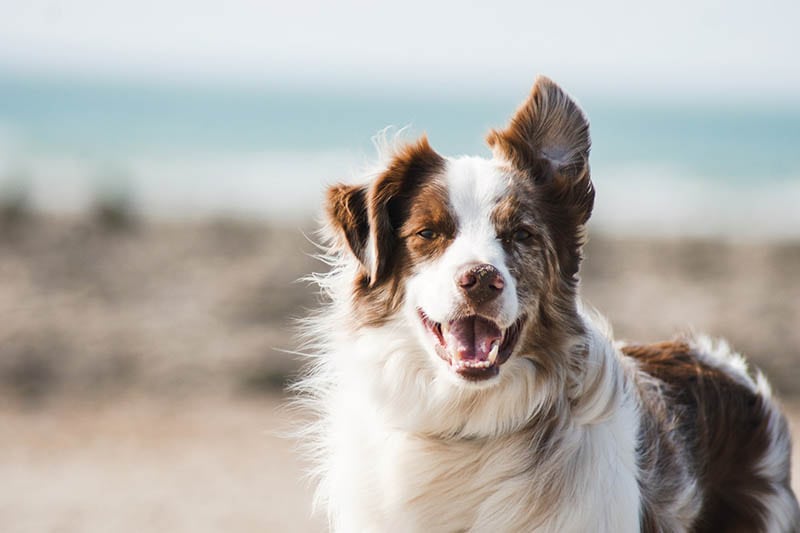
4. Environment
Australian Shepherds require lots of time and space to run until they’re worn out. They can become unhappy if you don’t have a fenced-in yard, ample living space, or time to walk them.
5. Prey Drive
Australian Shepherds are herding dogs and might chase after smaller animals. They can go after cats, squirrels, and even cars. Even though Aussies aren’t an aggressive breed, they might hurt another animal or get hurt.
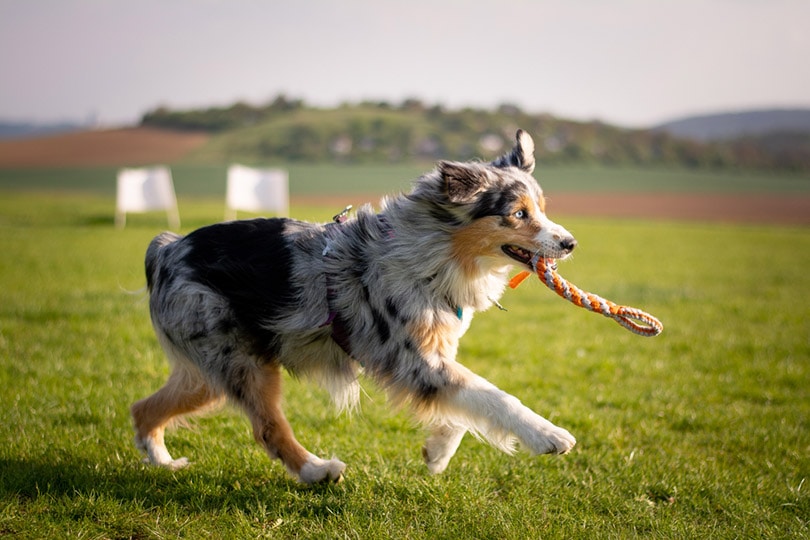
Buying vs. Adopting an Australian Shepherd
When you’re ready to bring your special new pal home, there are a few avenues you can take to find one.
Breeder
Many reputable breeders produce quality pups ready for their forever homes with appropriate vet care. You have to ensure breeders are responsible and caring. If you buy from a breeder, you can expect to pay roughly $600 to $1,000.
- You’re more likely to find a puppy
- You can take your time shopping and prepare for their arrival
- Your Aussie can acclimate with your family at an early age
- Purebred dogs are typically very expensive
- Not all breeders are legitimate
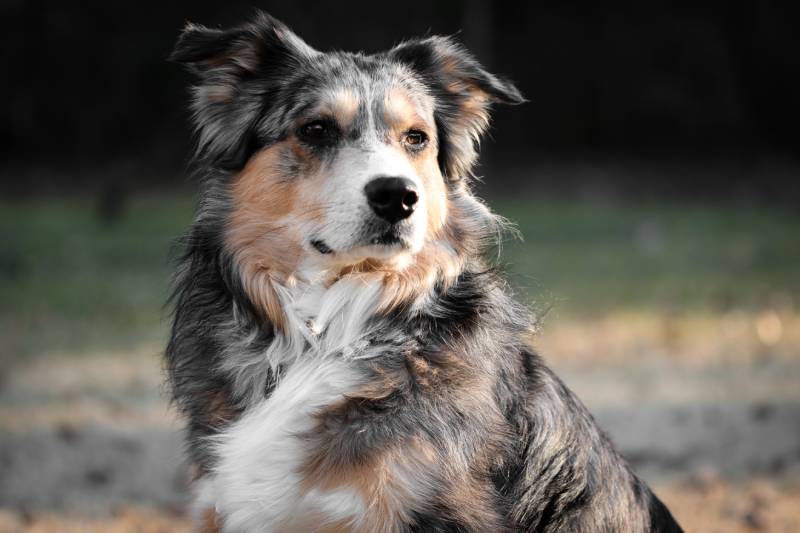
Shelter or Rescue
If an owner cannot care for their Aussie, they might surrender the dog to a rescue or shelter. Adoption costs are significantly less than buying from a breeder, but there are some downfalls. If you adopt, you’ll likely spend between $150 and $350.
- You can give an Aussie a second chance
- All vetting and exams are complete
- The dog will already come spayed or neutered
- You might not get a puppy
- The dog might have encountered abuse, neglect, or unique health issues
Previous Owner
Sometimes, owners look for another family to rehome their dog. This situation could develop for a few reasons, but it mostly has to do with personal lifestyle changes or basic incompatibility.
- You can get firsthand history of the dog
- You can prevent the dog from ending up at the shelter
- You might pay less than a breeder
- Not all people are trustworthy
- The dog’s temperament could be incompatible with your family
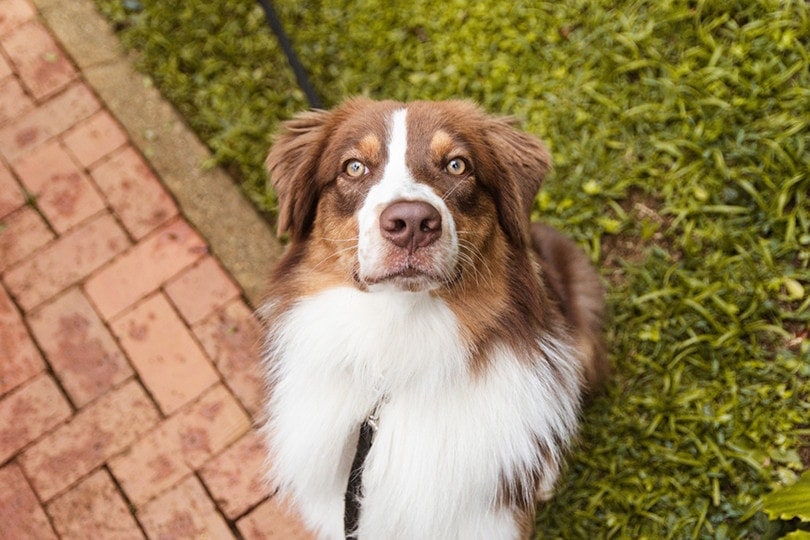
Australian Shepherd Breed History
Contrary to their name, Australian Shepherds descend from British herding dogs in the United States. Their origin is muddy, but their development is thought to have included Collies and Shetland Sheepdogs. Their early roots date back to the 1500s.
The prominence of this talented herding breed is quite apparent. Today, they rank 13th on the AKC breed list.
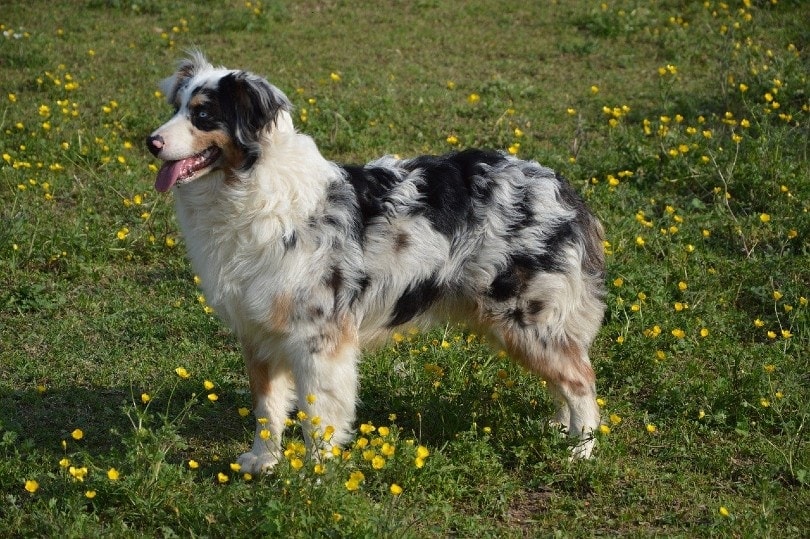
Australian Shepherd Temperament
Australian Shepherds are fun-loving, curious dogs with an innate desire to run. They enjoy games like fetch, frisbee, and other agility exercises. They are the happiest when they’re at work or play.
Australian Shepherds are pretty hyper puppies, so if you don’t channel their energy appropriately in the beginning—look out. A bored Aussie can be destructive, which is a behavior they don’t need to pick up.
As young dogs, Aussies should have regular stimulation, both mentally and physically. They will happily accompany you on an evening stroll, morning run, or playing games around the yard. They love activities that put their mind to work, and they love a good challenge.
Aussies are very keen observers, spotting the slightest movement at the drop of a dime. Because of that, you might notice they take a particular interest in windows and doors where they can see the busy activity outside.
Aussies form intensely strong bonds with each person in their family. They aim for acceptance from everyone they love. Many Australian Shepherds welcome strangers, although it depends on the dog. Others might be slightly reserved or indifferent towards guests or strangers.
Australian Shepherd Physical Traits
Australian Shepherds are medium-sized dogs with athletic, lean bodies. They have medium-to-long, wavy-to-straight fur that varies in color. Aussies always have white or tan markings in addition to other coloring.
Many Australian Shepherds have a beautiful blue-eye gene. Some eyes might be blue, while others have one blue eye only. This condition is known as heterochromia, where one eye lacks melanin.
| Height: | 18–23 inches |
| Weight: | 35–70 pounds |
| Coat Colors: | Merle, red, black, red, tricolor |
 Australian Shepherd Care
Australian Shepherd Care
Here is some basic care information when you own an Australian Shepherd.
Diet
Because Aussies are so energetic, they benefit from a high-quality, calorie-dense, protein-rich food. Avoid commercial foods with fillers like corn, wheat, or soy. Aussies aren’t stricken with any genetic food-related health issues, but they need nutrient-dense food that fits each life stage.
Exercise
Australian Shepherds require a minimum of 1 hour of strenuous exercise daily, but they will gladly accept more.

Training
Australian Shepherds are highly trainable but can be stubborn and distracted at first. Because Aussies notice everything, puppies might get a little off track when you’re trying to get them to focus. However, the dogs are brilliant and will pick up on any concept with adequate training.
Grooming
Aussies have thick double coats to protect their sensitive skin from harsh temperatures and thick foliage. Because of their unique fur, they require daily brushing. They benefit from monthly baths, nail trims, and regular teeth brushing—maybe even a professional spa day occasionally, too.
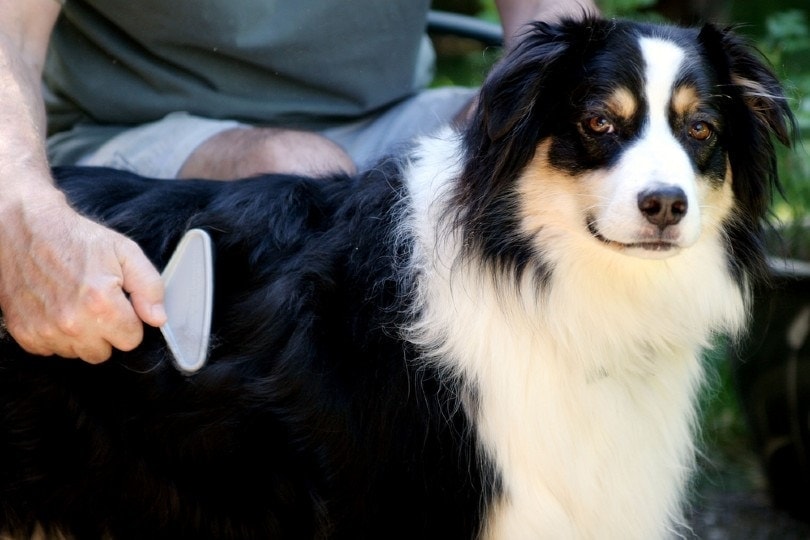
Health
Australian Shepherds are generally healthy but can run into a few issues. The most common problems are hip dysplasia, eye problems, and epilepsy.
Just for Fun
Here are some interesting facts about Aussies you might not know.
1. Australian Shepherds might nip heels
Because of their herding roots, the Australian Shepherd might nip at the heels of children and other animals to “keep them in line.” You can train them to channel this impulse productively. Or, you can hand them the task of wrangling the kids—it’s up to you!
2. They were once rodeo dogs
In the 1950s, a group of trained Australian Shepherds performed in a trick-style rodeo act.
3. Their tails are naturally short
No docking is required; Australian Shepherds have naturally short tails that reach about 4 inches.
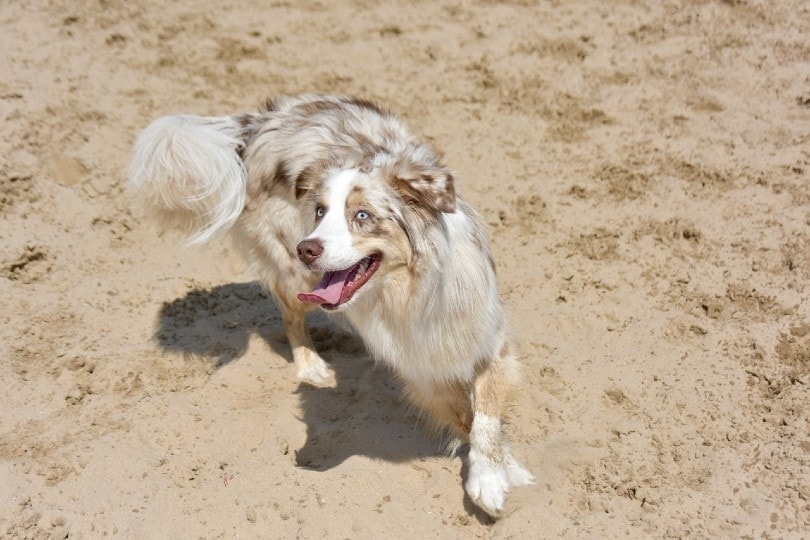
Your Family Might Love an Australian Shepherd If…
- You have plenty of time to walk, run, and play with them
- You are prepared to socialize them early with different faces and critters
- You make sure you have a secure fence and restraints on walks or at play
- You have an adequate amount of space both indoors and outdoors
- You can be firm and devoted to training
- You have an active household
- You can keep up with regular vet visits and care expenses
Final Thoughts
Now you can see that Australian Shepherds make fantastic family members for many. If you and your family have an active lifestyle and want to include your dog, an Aussie will happily oblige. These intelligent, energetic beauties will acclimate well, even in multi-pet households.
Remember to buy from a reputable breeder if an Australian Shepherd feels like a good match. You can also find many Aussies in shelters and rescues. If you buy a full-grown dog, meet and greets can help determine if the dog is a good fit for your family.
Related Reads:
- Are Australian Shepherds Hypoallergenic?
- How to Train Your Australian Shepherd: 8 Easy Tips
- Australian Shepherd Grooming: Complete & Easy Guide
- Do Australian Shepherds Get Along with Other Dogs?
Featured Image Credit: Altrendo Images, Shutterstock



 Australian Shepherd Care
Australian Shepherd Care

